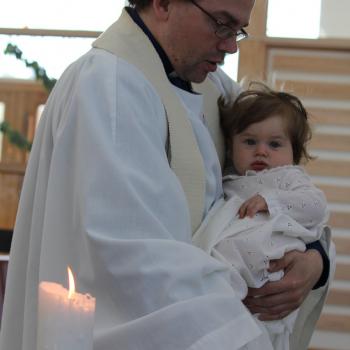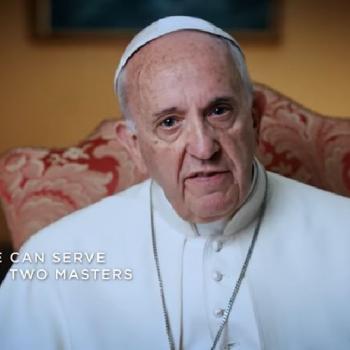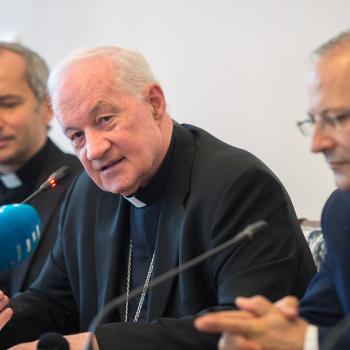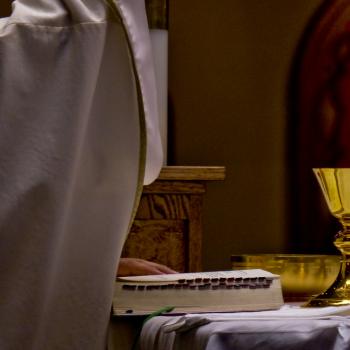It is highly significant that the two main outcomes of the German bishops’ fall assembly last week to have filtered into the English-speaking media should have been their proposal that Protestant spouses of Catholics be allowed to receive Communion, on the one hand, and their “regret” for what the rest of global Catholicism sees too often as the German Church’s excessive hunger for “funding and wealth”, on the other. The German bishops’ search for both intercommunion and for a greater material simplicity more in accord with the Gospel should be read as twin manifestations of a humbling – a mortification – the likes of which are not often seen in the Church today.
As the website katholisch.de reports, the German bishops voted “overwhelmingly” in favour of providing access to Communion for the Protestant spouses of the faithful in “certain circumstances”. The decision followed an “intense debate” in which, although “serious concerns” were raised, the German episcopate decided to press ahead with the “positive step” of intercommunion and keep discussing the issue of interdenominational marriages “in a high profile way”, as the president of the national Episcopal Conference, Cardinal Reinhard Marx, put it.
The Archbishop of Munich and Freising further explained that the Faith and Ecumenism committee of the Bishops’ Conference will in the next few weeks release a pastoral guide stipulating the steps Protestant partners of Catholic must follow in order to receive the Eucharist, which will include a “serious examination” of conscience, an affirmation of “the faith of the Catholic Church”, the expression of a desire to end the “serious spiritual distress” often associated with mixed-denomination marriages and the recognition of a personal “longing to satisfy a hunger for the Eucharist”.
As commentators have been quick to point out, the German bishops’ planned intercommunion provision seems to fly in the face of hundreds if not thousands of years of Church teaching. As recently as in 2015, for example, the Church’s liturgy czar, Cardinal Robert Sarah, wrote an instruction that declared that “[i]t’s not a personal desire or a personal dialogue with Jesus that determines if I can receive Communion in the Catholic Church”, but “being in a state of grace”.
But if the revolution in Church practice that intercommunion would represent were not enough, however, the German bishops’ have linked their proposal to their desire for a more evangelical stewardship not only of material resources but of the natural world as well.
“I am painfully aware that our Church needs to better address key issues of funding and wealth and to eliminate some ambiguity“, said Marx, who also lamented the episcopate’s push for further financial “transparency, [shared] control and solidarity” are still “not enough”. Especially, perhaps, after the Handelsblatt newspaper revealed in January this year that after receiving 6 billion euros in ‘Church tax’ in 2016 alone, the German Church is now sitting on assets worth some 26 billion euros.
Whatever the case may be, the German bishops – with their acknowledgment of the “serious spiritual distress” that Catholic-Protestant husbands and wives find themselves in and of the “ambiguity” their inordinate wealth generates in the faithful – have shown the rest of the Church the way forward in the exercise of institutional humility. Would that there were more Bishops’ Conferences around the world that would undertake a similar examination of conscience.












